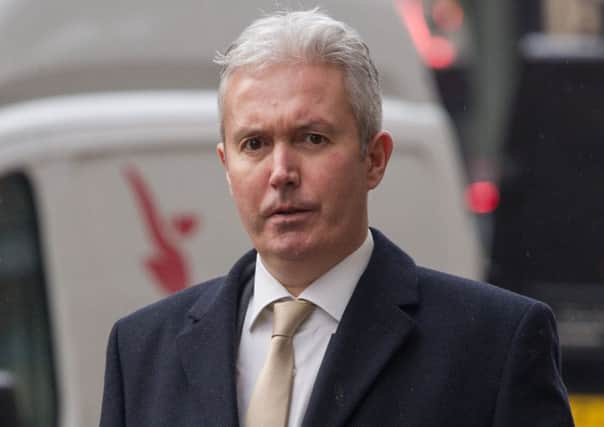GP suspended after drinking vodka in practice and driving while four times limit


Dr Martin Peverley, 51, had been drinking doubles in between treating patients and completing paperwork and was so inebriated, police had to physically carry him to their patrol car when they confronted him outside his home.
The GP - who was four times the drink drive limit - could barely speak when officers tried to talk to him following his 50-minute journey home and he was even too intoxicated to get out of the driver’s seat.
Advertisement
Hide AdAdvertisement
Hide AdThe doctor, who ran a medical practise in Hartlepool and was also director of the former Hartlepool and District Hospice, was later given a suspended jail term and a three-year driving ban.
At Medical Practitioners Tribunal Service, Peverley - who has not worked since his arrest - admitted misconduct charges but escaped with a six month suspension after claiming he was suffering from “accumulated stress caused by professional and financial problems”. He will undergo a review in June where it is expected he will ask to be allowed to treat patients again.
The drink driving incident occurred at 6.50pm on April 15 last year after the GP bought a 70cl bottle of vodka during his lunch break - then had two doubles before consulting various patients.
He drank three quarters of the bottle while completing paperwork before driving home.
Advertisement
Hide AdAdvertisement
Hide AdKevin Slack, lawyer for the General Medical Council, said: “The police report states that Dr Peverley’s vehicle was braking and speeding up with no cause, narrowly missing other vehicles. He was followed to his home address and observed parking up and remaining in the drivers’ seat. No other people were in the vehicle.
“He was observed until police arrived and they tried to speak with Dr Peverley but due to him being intoxicated they had to physically pull him out of the drivers’ seat where he fell on the floor and had to be carried to the police vehicle. He was over four times the legal limit.”
Peverley was breathalysed at the police station where the lowest reading was 153 microgrammes of alcohol in 100 millilitres of breath. The legal limit is 35.
Later that month he admitted drink driving at Teeside Magistrates’ Court and was banned from driving for 36 months, given an eight-week prison sentence suspended for 12 months and ordered to pay £115 charges and £85 costs.
Advertisement
Hide AdAdvertisement
Hide AdThe GP voluntarily referred himself to the GMC for a disciplinary hearing.
Peverley’s lawyer Jonathan Holl-Allen said his client had been under “significant professional pressure” because for two years he had undertaken sole responsibility for the medical practise - which has 3,500 patients - following the retirement of the other GP partner.
He said the GP - who qualified in 1990 and joined the surgery in 2005 - was also under “financial pressures” because a misunderstanding over funding from NHS England led to the practise incurring considerable debts in fees for locum doctors.
Apologising for his drink driving shame, Peverley himself admitted making a “very serious error of judgement”, but said his actions were out of character and occurred against a background of “accumulating stress, caused by professional and financial problems, which had come to a head”. He said he had taken “steps” to deal with his bouts of stress and his wife was standing by him.
Advertisement
Hide AdAdvertisement
Hide AdTribunal chairman Sean Ell told Peverley: “The actions which led to your conviction were very serious, and had the potential to cause harm to members of the public - but the tribunal did not have any direct allegation of you having caused harm to your patients.
“It is clear that on the day of your arrest that you displayed an extreme and concerning reaction to the pressures upon you, consuming a significant amount of alcohol in a short period of time whilst at your workplace, and then driving home with the obvious potential to cause serious harm to the public.
“An informed member of the public would be shocked, even having taken into account the financial and professional pressures which you were under, that you had driven home whilst four times over the legal limit for driving. But there was no evidence that you were inebriated when seeing patients that afternoon, and no evidence had since come to light of any harm to patients.”
“Suspension would promote and maintain public confidence in the profession and will allow you time to embrace alternative strategies to cope with this kind of stress, ensuring that there is a reduced risk that you will repeat your actions. It has found no specific risk to patient safety in this case.”